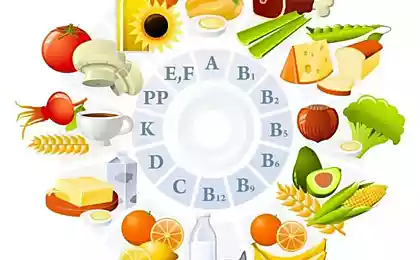207
9 Signs That This Is Not Your Person and 9 Signs That This Is Your Person
How to know if your relationship is right for you and what to pay attention to to avoid disappointment and open the way to harmony.

Introduction: Finding your own person or the illusion of a relationship?
In a world where we all strive for love and understanding, it’s especially important to recognize when we’ve actually found our own person and when we’ve only had hope. According to the American Psychological Association, feelings of emotional security in relationships directly affect our mental health and life satisfaction. But how to weed out fantasies and illusions from genuine signals indicating that you and your partner are on the same wavelength? In this article, we will look at 9 signs by which you can determine that a person is not suitable for you, and another 9 by which you can say that he is most likely “your”.
9 Signs That This Is Not Your Person
Before we get to positive signals, it’s important to recognize negative markers. Sometimes we get so carried away with feelings and dreams about the future that we ignore the alarm bells. Here are 9 signs that may indicate that a person is not suitable for you:

9 Signs That This Is Your Person
Fortunately, there’s also the joyous side: when you meet your “own” person, many aspects of a relationship develop easily and naturally. Here are 9 signals to pay attention to:
Practical block: how to determine your person or not?
Of course, relationships are a complex field, and there is no universal formula suitable for everyone. However, if you notice most of the signs on the “negative list” and see almost no positive signals, it is worth seriously thinking about what this union leads to. On the contrary, if you notice that your relationship is dominated by “healthy” trends and negative aspects are resolved, you can talk about overall compatibility.
Ask yourself and your partner questions:

Conclusion: Choosing a relationship consciously
Ideally, we all want to meet a person with whom life becomes better, more comfortable, richer in emotions and opportunities for growth. But in order to find your “own” person, you need to understand what exactly we need, and be ready for an honest assessment of reality. Knowing 9 signs when a relationship is bad and 9 signs when it brings joy will help you navigate the emotional realm more confidently.
Keep in mind that people are changeable, and even a “not your” person may one day become closer if both choose to change. What matters is how willing you are to work together on the relationship while maintaining respect for yourself. After all, if you don’t feel happy and free next to this person, perhaps look for the wrong track. And if everything is easy and with a mutual desire for harmony – hold on to this chance to build something really worthwhile.

Introduction: Finding your own person or the illusion of a relationship?
In a world where we all strive for love and understanding, it’s especially important to recognize when we’ve actually found our own person and when we’ve only had hope. According to the American Psychological Association, feelings of emotional security in relationships directly affect our mental health and life satisfaction. But how to weed out fantasies and illusions from genuine signals indicating that you and your partner are on the same wavelength? In this article, we will look at 9 signs by which you can determine that a person is not suitable for you, and another 9 by which you can say that he is most likely “your”.
9 Signs That This Is Not Your Person
Before we get to positive signals, it’s important to recognize negative markers. Sometimes we get so carried away with feelings and dreams about the future that we ignore the alarm bells. Here are 9 signs that may indicate that a person is not suitable for you:
- Constant criticism and depreciation. If your partner regularly points out your shortcomings without noticing the merits and you feel humiliated, that’s a red flag.
- Lack of genuine interest. A person does not ask about your feelings or worries, does not want to immerse themselves in what is important to you. He doesn't seem to care what you live for.
- Manipulation. The partner induces feelings of guilt, uses ultimatums or incites fear to achieve their goals. In healthy relationships, such practices are unacceptable.
- Rejection of your identity. If you feel that you want to “reshape” under a certain ideal, do not accept your worldview, hobbies, social circle, this will lead to internal conflict.
- There is no common value system. Disagreements on global issues (e.g. attitudes toward family, education, and life goals) can become a source of constant conflict.
- Frequent quarrels without a constructive solution. The partner moves away from the dialogue, blames rather than tries to find a compromise, and each time the relationship becomes more tense.
- Insincerity and mystery. If you suspect that you are being lied to in trifles or hidden important details of life, it is worth considering the honesty of this relationship.
- Lack of support. Instead of encouraging or helping you develop, the person is indifferent to your victories and does not give emotional support.
- Feeling devastated after meetings. If you constantly feel negative or tired after communicating with your partner, this is a sign of an energy imbalance in the relationship.

9 Signs That This Is Your Person
Fortunately, there’s also the joyous side: when you meet your “own” person, many aspects of a relationship develop easily and naturally. Here are 9 signals to pay attention to:
- Respect and acceptance of the individual. Your partner values you for who you are and doesn’t try to make you fit your ideal.
- Support during difficult times. You feel you can count on emotional and practical help. When problems arise, the partner does not criticize, but helps to find a solution.
- A sincere interest in you. The person asks about your plans, dreams, emotions and is willing to listen without judgment.
- Shared values and objectives. You may not be the same, but look at the fundamentals (family, lifestyle, morals) in a similar way.
- Ability to resolve conflicts constructively. Fighting is inevitable in any relationship, but there is a desire to find a compromise and come to an agreement.
- Freedom of expression. You can be yourself and not be afraid of judgment. Your partner inspires you to grow.
- Emotional comfort. Together you feel warmth and confidence in the future. There is no constant tension or fear of being misunderstood.
- Trust and transparency. There are no ulterior motives and manipulations, you openly share your thoughts and plans.
- The joy of time together. You enjoy spending time together, whether it’s global travel or quiet evenings at home.
Practical block: how to determine your person or not?
Of course, relationships are a complex field, and there is no universal formula suitable for everyone. However, if you notice most of the signs on the “negative list” and see almost no positive signals, it is worth seriously thinking about what this union leads to. On the contrary, if you notice that your relationship is dominated by “healthy” trends and negative aspects are resolved, you can talk about overall compatibility.
Ask yourself and your partner questions:
- “What are we doing to support each other?”
- “Do we have common goals and a vision for the future? ?
- “How do we deal with conflicts and are we prepared to compromise? ?
- “Do I feel comfortable showing my true feelings and emotions? ?

Conclusion: Choosing a relationship consciously
Ideally, we all want to meet a person with whom life becomes better, more comfortable, richer in emotions and opportunities for growth. But in order to find your “own” person, you need to understand what exactly we need, and be ready for an honest assessment of reality. Knowing 9 signs when a relationship is bad and 9 signs when it brings joy will help you navigate the emotional realm more confidently.
Keep in mind that people are changeable, and even a “not your” person may one day become closer if both choose to change. What matters is how willing you are to work together on the relationship while maintaining respect for yourself. After all, if you don’t feel happy and free next to this person, perhaps look for the wrong track. And if everything is easy and with a mutual desire for harmony – hold on to this chance to build something really worthwhile.
The amazing world of mushrooms: hidden forces under the hat
7 Dangerous Myths About Emotional Trauma: "Just Forget" and Other Traps























